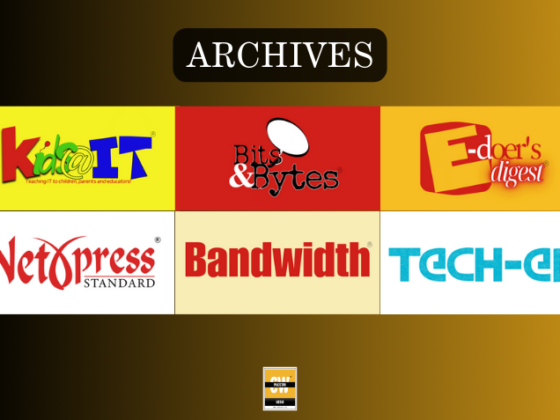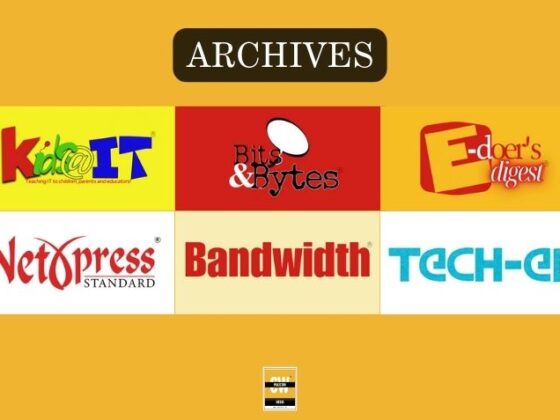Netxpress May Edition 2005
When we met with Sajid Hameed, the Resident Director of Etilize Pakistan at Karachi’s Software Technology Park, we thought we were sitting in an office situated in another country. For anyone who says that there isn’t any potential in Pakistan for the development and management of content, they seriously need to rethink and take a look at the kind of work that Etilize Pakistan is doing.
You rate the success of any company by assessing how much it has grown over the years. Etilize jumped from being a 2-person organization to more than 250 people over the last 6 years. Starting out with no customers, it now has more than 100 customers today, including big names such as Wal-Mart, Apple, and Ingram Micro.
“We started off with the US market initially and we now sell products in 15 different markets across 3 continents: North America, Western Europe, and Asia Pacific,” says Sajid. Etilize is the second leading provider of products and services in its space in terms of market share and expects to be number one in a few years.
So what do these guys think the secret to their successful growth has been? Is there really that much work available out there?
“The key for growth in our organization,” starts Sajid, “is our supply scalability. Whereas traditional BPOs may suffer a lack of growth because of a lack of demand, that is not the case with us.” The company has been experiencing demand far greater than the number of products and services they can handle.
“The key to growing at such a pace has been our ability to scale our organization very quickly. Within the first 2 years of starting our Karachi office, we went from 20 to 180 people.” While most companies in the ITeS sector would consider that to be a risk of grandeur proportions, Etilize has the knack for getting the business to match its growth – or, as they say, the growth to match its business demand.
Do you feel various agencies, organizations, and government departments in Pakistan allow you enough flexibility to function as a company on the rise? Physical infrastructure, Internet bandwidth, and human resource development (in particular) all need lots of improvement. The fact that there are tremendous tax exemption advantages from the government really helps.
Your operations obviously depend on a large number of skilled human resources – Could you comment on your experience in working in Pakistan?
You have to anticipate heavy training costs and employee turnover. Skills aren’t easily available in the market; you have to have your own very strong training programs that unfortunately add cost and ramp-up time. Hence I mentioned before, the bottleneck is supply and not demand.
On a positive note, the youth in Pakistan have tremendous potential energy. If channeled properly, it can lead to extraordinary achievements.
You have a large portion of your development work being done in Pakistan – How do your clients, both existing and potential, react to this?
It’s definitely not a positive reaction or a selling point. However, if you create true value and have a proven track record, this is not a big hurdle to overcome. Big projects from North America or Western Europe – such as 1000+ call center seats for example – would struggle to be won by
Pakistani companies because of the geopolitical risks involved. Hence I’m not as big a fan of BPO out of Pakistan as I am of innovative product development.
How has the infrastructure within Pakistan (IT and non-IT) changed over the years? Considering you do a lot of offshore development work, don’t you depend on a lot of telecommunications?
It’s definitely gotten a lot better. Redundancy of internet after the disaster a year ago, more fiber optic cables to more buildings, Software parks out of Islamabad and Lahore. Though I believe Karachi has not gotten its fair share of attention.
How do you market yourself for new projects?
1- Through existing customer relationships
2- Through our sales organization based out of North America and Europe,
3- Through traditional marketing media – trade shows, web media, and to some extent print media.
Do you participate in local or international expos? Does the Government provide you with any incentives or assistance in showcasing yourself?
Yes, we do, but few and selected local ones. PSEB and Pasha have been very accommodating and incentives are very attractive. We also participate actively in international expos which are in line with our business in North America, Europe, and Asia Pacific.
Have local organizations and forums helped you to project yourself in the international market? If yes, how so – If not, what role do you think Pakistani platforms and forums should play in order to assist companies?
Well, local Pakistani platforms and forums have to get more visibility on generally read media by the business world. When was the last time a positive article was published in Business Week or Financial Times on the Pakistan IT exports industry? Can’t remember.
Why is it that local companies do very little local work? They seem to have few local clients – what do you think causes this? Do you feel that this is something that can change and increase?
On the contrary, the local/domestic market for IT services in Pakistan is much bigger than its exports. Though I believe there is a lot of potential for growth. There is constant improvement in awareness and realization of the value of IT in the local market. Companies who are doing well in the international market may not be attracted by the local market because of inherent issues that are well known to all.
Do you feel that there is even a demand for Content Management or Product Content Development in Pakistan? Considering content (or processed information) is so vital for any company, how do you think local companies can be assisted to realize the importance of creating and managing content?
Not yet. Pakistan’s e-commerce infrastructure and retail industry would have to progress quite a bit before there is any substantial demand for Product Content here.
While the authorities go after trying to control software piracy, what about content piracy? What kinds of problems do you encounter in your line of work and how do you deal with it?
Content is not something you can easily copy on a CD and just click on setup.exe and install. It has to be integrated in specific ways and needs daily updates. Piracy is not a big issue here – at least with the kind of content that we develop.
Could you comment on Pakistan as an outsourcing market for international companies to come to, vis-à-vis your field – Keeping in mind the infrastructure and policies, do you think we have a lot of potential to get and do the work?
I believe there is more bang for the buck if the limited resources that Pakistan has are focused towards different business models other than traditional outsourcing. You could have a 14-year-old kid with a computer, a modem connection, build an anti-spyware software that may change the world – it alone may account for hundreds of millions of dollars of exports. To do the same from outsourcing cheaper labor would take a long time and I don’t think Pakistan would be as successful as India or China in this space.
So I am a big proponent of research and innovative business models versus outsourcing cheaper labor for Pakistan. However, I do believe that we have potential and supportive policies that provide a platform for our local companies to progress in different verticals of the industry.
What are some changes that need to happen in terms of policy, infrastructure, or attitude to make Pakistan a better, more conducive working environment?
I may not be the best person to comment; however, I think change is never brought by change in policy. Change comes from action. We don’t need more policies; we need more projects and more ideas. We need faster/better execution of the ones that already exist.




